-
 Bitcoin
Bitcoin $86,989.5773
2.47% -
 Ethereum
Ethereum $1,907.7486
-0.28% -
 Tether USDt
Tether USDt $0.9998
0.00% -
 XRP
XRP $2.1782
1.30% -
 BNB
BNB $605.9725
-1.07% -
 Solana
Solana $130.9318
2.03% -
 USDC
USDC $0.9997
-0.03% -
 Dogecoin
Dogecoin $0.1757
1.47% -
 Cardano
Cardano $0.6948
1.08% -
 TRON
TRON $0.2378
0.79% -
 Toncoin
Toncoin $4.0441
0.19% -
 Chainlink
Chainlink $14.1226
-0.93% -
 UNUS SED LEO
UNUS SED LEO $9.3952
0.65% -
 Stellar
Stellar $0.2737
-1.37% -
 Avalanche
Avalanche $19.7700
-0.01% -
 Sui
Sui $2.4853
0.25% -
 Shiba Inu
Shiba Inu $0.0...01283
-0.56% -
 Hedera
Hedera $0.1728
-0.67% -
 Polkadot
Polkadot $4.2112
-0.14% -
 Litecoin
Litecoin $86.0983
1.27% -
 Bitcoin Cash
Bitcoin Cash $312.1520
-0.42% -
 MANTRA
MANTRA $6.3442
0.01% -
 Bitget Token
Bitget Token $4.6044
-0.33% -
 Dai
Dai $0.9999
0.00% -
 Ethena USDe
Ethena USDe $0.9999
0.00% -
 Hyperliquid
Hyperliquid $14.0809
4.33% -
 Pi
Pi $0.6847
-3.43% -
 Monero
Monero $219.9574
0.86% -
 Uniswap
Uniswap $6.2581
0.04% -
 Pepe
Pepe $0.0...07858
1.61%
What is the connection between Bitcoin addresses and wallets?
A Bitcoin address is like a bank account number for receiving funds, while a wallet manages private keys, securing access to spend those funds.
Mar 30, 2025 at 12:21 am
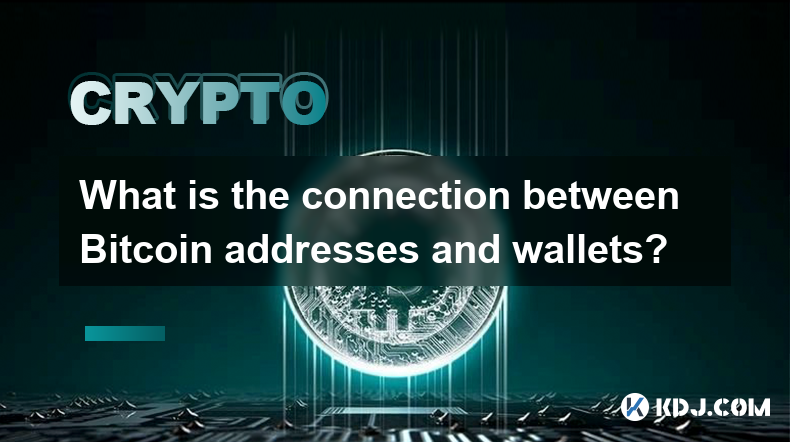
Understanding Bitcoin Addresses and Wallets: A Deep Dive
Bitcoin wallets and addresses are intrinsically linked, yet distinct components of the Bitcoin ecosystem. Understanding their relationship is crucial for anyone interacting with Bitcoin. Essentially, a Bitcoin address is like your bank account number, while the wallet is like your bank itself, holding your funds and facilitating transactions. You use your address to receive Bitcoin, but the wallet manages your private keys, securing your access to those funds.
Bitcoin addresses are strings of alphanumeric characters, publicly visible and used to receive Bitcoin. Think of it as a destination for your Bitcoin transactions. Each transaction requires a unique receiving address. Multiple addresses can be associated with a single wallet, offering improved privacy and organization of funds.
A Bitcoin wallet, on the other hand, is software or hardware that manages your private keys. These private keys are cryptographic secrets that prove ownership of your Bitcoin. Without them, you cannot access or spend your Bitcoin. Wallets come in various forms, including software wallets (desktop, mobile), hardware wallets, and paper wallets, each with its own security trade-offs.
The connection is fundamentally this: your wallet generates and manages the addresses you use to receive Bitcoin. The wallet keeps track of the balance associated with each address and allows you to initiate transactions from those addresses using your private keys. The address itself doesn't hold the Bitcoin; it's merely an identifier for receiving funds, while the wallet secures the means to spend those funds.
Different wallets might employ different address generation methods, but the core principle remains: the wallet is the custodian of the private keys, allowing you to control the Bitcoin associated with the addresses it generates. Losing your private keys means losing access to your Bitcoin, regardless of how many addresses you have.
The Mechanics of Address Generation and Management
The process of generating a Bitcoin address is handled internally by your wallet. You don't typically need to understand the cryptographic intricacies, but it's important to know that it involves complex mathematical functions that derive a public address from your private key. This process is one-way; you cannot derive the private key from the public address.
- The wallet generates a new key pair (public and private) for each new address.
- The public key is used to create the Bitcoin address.
- The private key remains securely stored within the wallet and is essential for spending the Bitcoin received at that address.
- The wallet software keeps track of all generated addresses and their corresponding balances.
This ensures that each transaction is linked to a specific address, enhancing privacy and allowing for better tracking of funds. The wallet software facilitates the creation and management of these addresses, simplifying the process for the user. It's crucial to select a reputable and secure wallet to protect your private keys and Bitcoin.
Security Implications of the Wallet-Address Relationship
The security of your Bitcoin hinges on the security of your wallet and the safekeeping of your private keys. Compromising your private keys, regardless of the number of addresses you have, grants an attacker complete control over your Bitcoin.
- Hardware wallets offer the highest level of security by storing your private keys offline.
- Software wallets are more convenient but require robust security practices, including strong passwords and regular software updates.
- Paper wallets are a less convenient but potentially more secure option if stored correctly and securely.
It's crucial to understand that your Bitcoin address is public information. It's perfectly safe to share your Bitcoin address with others to receive payments. However, never share your private keys with anyone. Losing your private keys is equivalent to losing your Bitcoin.
The relationship between Bitcoin addresses and wallets is fundamental to understanding how Bitcoin works. The wallet manages the private keys, which are essential for spending Bitcoin received at the addresses it generates. Safeguarding your private keys is paramount for maintaining the security of your Bitcoin holdings.
Exploring Different Wallet Types and Their Address Management
Various wallet types exist, each with its own approach to address management. Software wallets often generate many addresses, while hardware wallets may offer a simpler interface. Understanding these differences is crucial for choosing the right wallet for your needs.
- Desktop wallets: These wallets are installed on your computer and offer a balance between convenience and security. They often manage multiple addresses.
- Mobile wallets: These wallets are convenient for everyday use but can be vulnerable if your phone is lost or stolen. They also generally manage multiple addresses.
- Hardware wallets: These wallets store your private keys on a secure hardware device, offering the highest level of security. Address management is typically simpler.
- Paper wallets: These wallets store your private keys on a printed piece of paper. They are secure if stored safely but inconvenient for regular transactions. They generate a single address per key pair.
The method of address generation and management varies depending on the wallet type and its underlying software. However, the core principle remains the same: the wallet holds the private keys necessary to spend Bitcoin received at the addresses it generates.
Frequently Asked Questions
Q: Can I reuse a Bitcoin address?
A: Yes, you can reuse a Bitcoin address. However, reusing addresses can compromise your privacy as it links multiple transactions to the same address. Most wallets generate a new address for each transaction to enhance privacy.
Q: What happens if I lose my Bitcoin wallet?
A: If you lose your Bitcoin wallet without backing up your private keys, you will lose access to your Bitcoin. There is no way to recover your Bitcoin without your private keys. This highlights the importance of securely backing up your wallet and private keys.
Q: How many Bitcoin addresses can I have?
A: You can have as many Bitcoin addresses as you need. Most wallets generate a new address for each transaction automatically, although you can usually manually generate addresses as well. The number is limited only by the storage capacity of your wallet and your own organizational needs.
Q: Is it safe to share my Bitcoin address?
A: Yes, it is generally safe to share your Bitcoin address. Your Bitcoin address is public information and is analogous to your bank account number. Sharing it allows others to send you Bitcoin. However, never share your private keys.
Q: What is the difference between a public key and a private key?
A: The public key is derived from the private key through a one-way cryptographic function. The public key is used to generate your Bitcoin address, while the private key is what allows you to spend the Bitcoin associated with that address. Never share your private key.
Disclaimer:info@kdj.com
The information provided is not trading advice. kdj.com does not assume any responsibility for any investments made based on the information provided in this article. Cryptocurrencies are highly volatile and it is highly recommended that you invest with caution after thorough research!
If you believe that the content used on this website infringes your copyright, please contact us immediately (info@kdj.com) and we will delete it promptly.
- Binance co-founder Changpeng Zhao (CZ) believes 99.95% of AI agents do not need an ecosystem token.
- 2025-04-03 00:55:12
- Bitcoin Regains Bullish Momentum, Surging Past $87,000
- 2025-04-03 00:55:12
- Evolving From Speculative Investments to Mainstream Assets, WisdomTree Is at the Forefront of Leading the Charge
- 2025-04-03 00:50:12
- title: Tron founder Justin Sun has publicly declared that First Digital Trust, a Hong Kong-based fiduciary
- 2025-04-03 00:50:12
- Sentient Releases Open-Source AI Search Framework That Outperforms GPT-4o
- 2025-04-03 00:45:13
- This new Canadian coin offers a 360-degree view of the northern lights.
- 2025-04-03 00:45:13
Related knowledge

How to safely transfer Bitcoin from KuCoin to Huobi
Apr 02,2025 at 04:49pm
Transferring Bitcoin from one exchange to another, such as from KuCoin to Huobi, is a common practice among crypto enthusiasts. However, ensuring the safety and security of these transactions is paramount. This guide will walk you through the step-by-step process of safely transferring Bitcoin from KuCoin to Huobi, highlighting essential security measur...
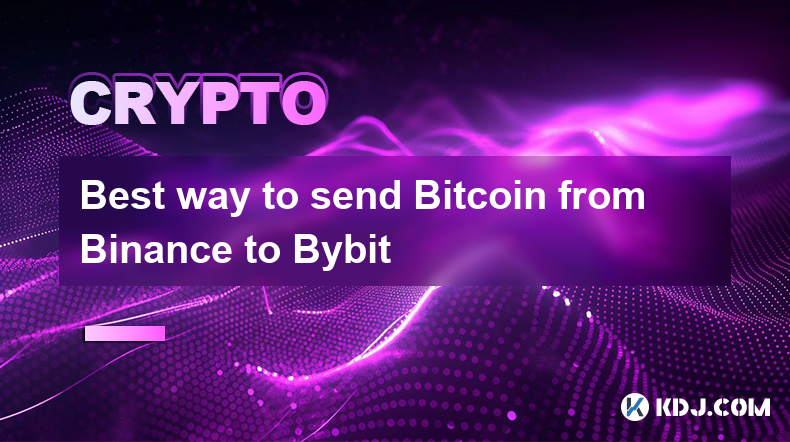
Best way to send Bitcoin from Binance to Bybit
Apr 02,2025 at 09:36pm
Sending Bitcoin from Binance to Bybit is a straightforward process, but it's essential to follow the steps carefully to ensure a smooth and secure transaction. This article will guide you through the best practices for transferring Bitcoin between these two popular cryptocurrency exchanges. We'll cover the necessary preparations, the step-by-step proces...
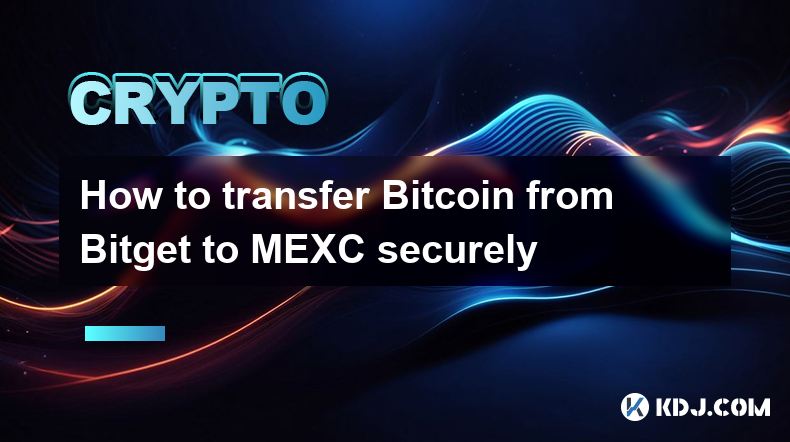
How to transfer Bitcoin from Bitget to MEXC securely
Apr 02,2025 at 06:07pm
Transferring Bitcoin from one exchange to another, such as from Bitget to MEXC, requires careful attention to detail to ensure the process is secure and successful. This article will guide you through the steps needed to complete this transfer safely, highlighting important considerations and best practices to protect your assets. By following these ins...
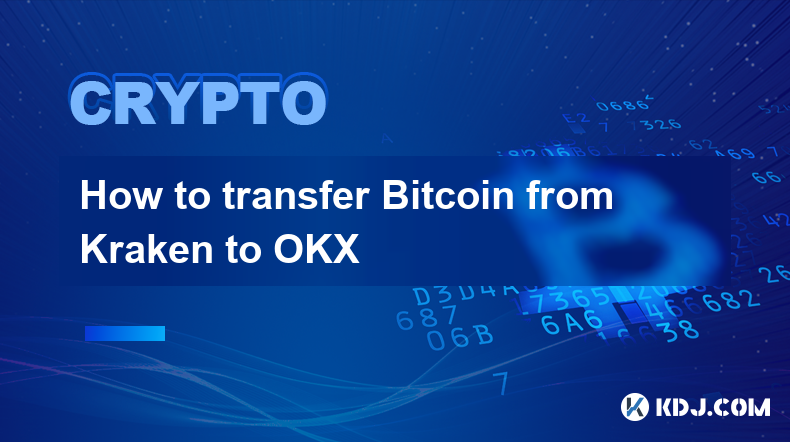
How to transfer Bitcoin from Kraken to OKX
Apr 02,2025 at 05:15pm
Transferring Bitcoin from Kraken to OKX involves several key steps that ensure a smooth and secure process. Before initiating the transfer, it's crucial to understand the basics of both exchanges and ensure that you have accounts set up on both platforms. Kraken and OKX are reputable cryptocurrency exchanges that support Bitcoin transactions. This guide...
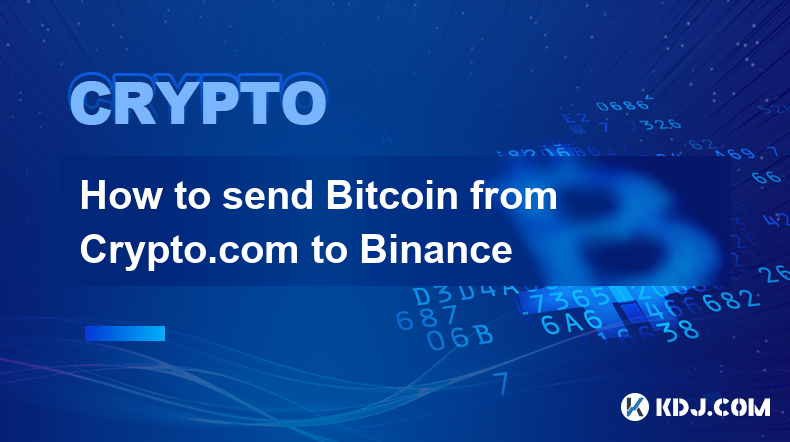
How to send Bitcoin from Crypto.com to Binance
Apr 02,2025 at 07:42pm
Sending Bitcoin from Crypto.com to Binance is a straightforward process, but it requires careful attention to detail to ensure the transaction is successful and secure. Before initiating the transfer, it's crucial to understand the steps involved and the potential fees associated with the transaction. This guide will walk you through the process step-by...

What is the time limit for Bitcoin spot trading
Mar 30,2025 at 10:43am
? There's no single, universally applicable 'time limit' for Bitcoin spot trading. Unlike futures contracts which have defined expiration dates, spot trading involves the immediate exchange of Bitcoin for fiat currency (or vice versa). The transaction is executed almost instantly, pending confirmation on the Bitcoin blockchain. However, several factors ...

How to safely transfer Bitcoin from KuCoin to Huobi
Apr 02,2025 at 04:49pm
Transferring Bitcoin from one exchange to another, such as from KuCoin to Huobi, is a common practice among crypto enthusiasts. However, ensuring the safety and security of these transactions is paramount. This guide will walk you through the step-by-step process of safely transferring Bitcoin from KuCoin to Huobi, highlighting essential security measur...

Best way to send Bitcoin from Binance to Bybit
Apr 02,2025 at 09:36pm
Sending Bitcoin from Binance to Bybit is a straightforward process, but it's essential to follow the steps carefully to ensure a smooth and secure transaction. This article will guide you through the best practices for transferring Bitcoin between these two popular cryptocurrency exchanges. We'll cover the necessary preparations, the step-by-step proces...

How to transfer Bitcoin from Bitget to MEXC securely
Apr 02,2025 at 06:07pm
Transferring Bitcoin from one exchange to another, such as from Bitget to MEXC, requires careful attention to detail to ensure the process is secure and successful. This article will guide you through the steps needed to complete this transfer safely, highlighting important considerations and best practices to protect your assets. By following these ins...

How to transfer Bitcoin from Kraken to OKX
Apr 02,2025 at 05:15pm
Transferring Bitcoin from Kraken to OKX involves several key steps that ensure a smooth and secure process. Before initiating the transfer, it's crucial to understand the basics of both exchanges and ensure that you have accounts set up on both platforms. Kraken and OKX are reputable cryptocurrency exchanges that support Bitcoin transactions. This guide...

How to send Bitcoin from Crypto.com to Binance
Apr 02,2025 at 07:42pm
Sending Bitcoin from Crypto.com to Binance is a straightforward process, but it requires careful attention to detail to ensure the transaction is successful and secure. Before initiating the transfer, it's crucial to understand the steps involved and the potential fees associated with the transaction. This guide will walk you through the process step-by...

What is the time limit for Bitcoin spot trading
Mar 30,2025 at 10:43am
? There's no single, universally applicable 'time limit' for Bitcoin spot trading. Unlike futures contracts which have defined expiration dates, spot trading involves the immediate exchange of Bitcoin for fiat currency (or vice versa). The transaction is executed almost instantly, pending confirmation on the Bitcoin blockchain. However, several factors ...
See all articles























































































